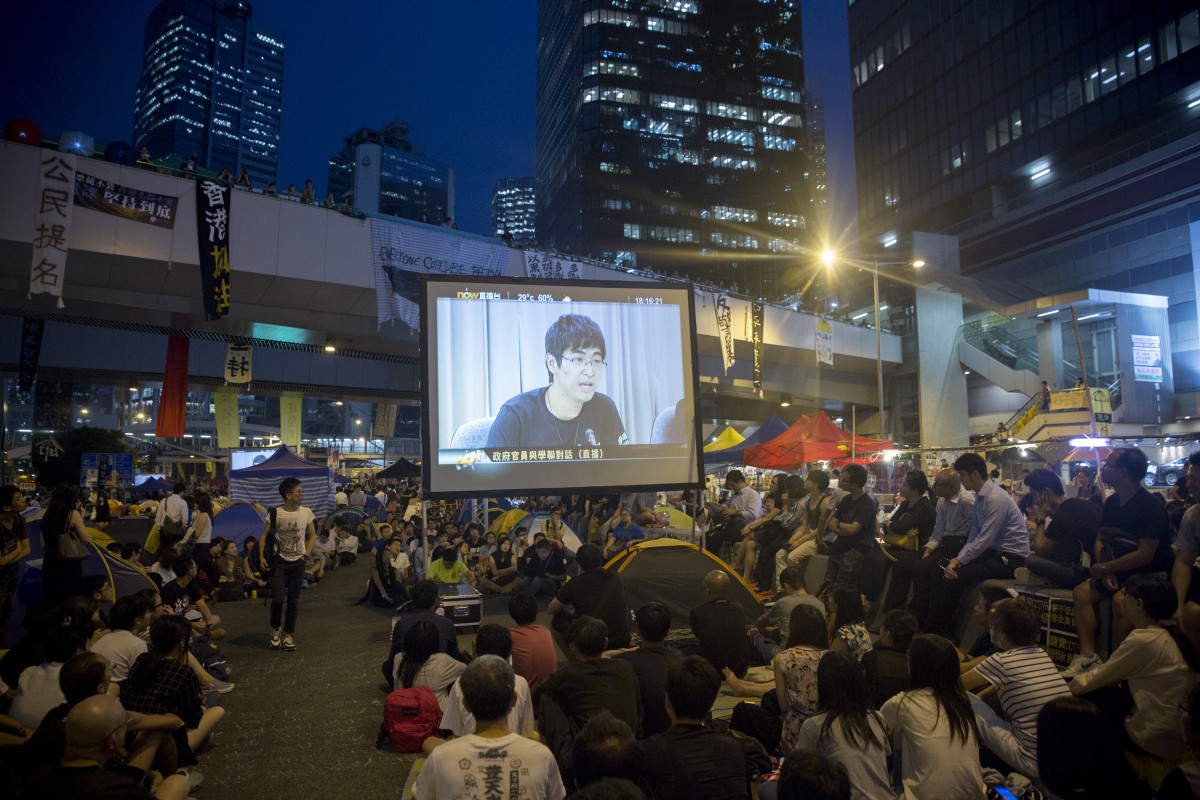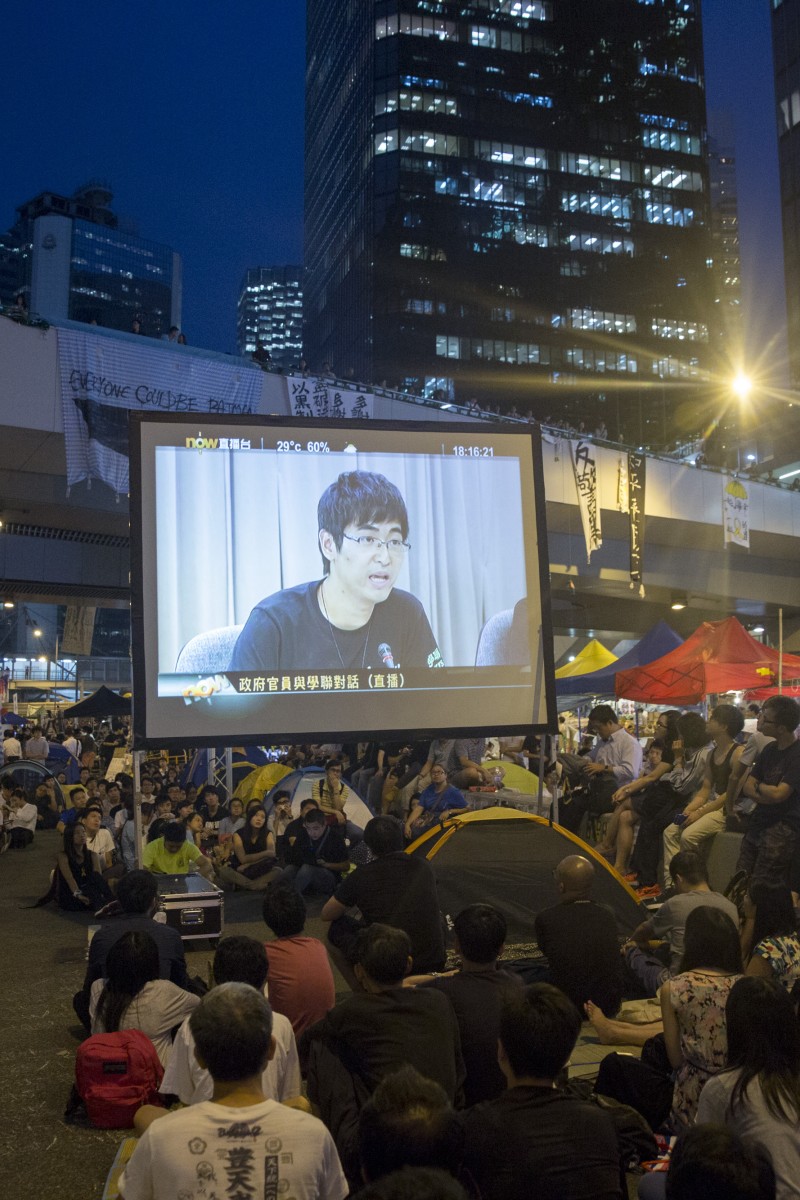 Protesters watching the talk between HKFS and government officials live in Admiralty on Tuesday night.
Protesters watching the talk between HKFS and government officials live in Admiralty on Tuesday night.Government representatives met leaders of the Hong Kong Federation of Students for the first time on Tuesday night in a formal discussion regarding the demands of the student protesters. Although as Chief Secretary Carrie Lam Cheng Yuet-ngor clearly stated, “It is not a debate contest,” Young Post has gathered a panel of experienced adjudicators to give their opinions on who would have won if the talks had been a formal debate.
Leonhard Weese, a debate trainer who has been a judge in Europe, Hong Kong and China, said that both sides had their highs and lows. “There were definitely some highlights from a debate standpoint,” Weese commented, “and even the government did better than I would have expected of them. But of course they didn’t have the same ability to reply as well to questions as the students.”
The government stance throughout the talks reiterated that Hong Kong was required to defer to the ruling of Beijing’s National People’s Congress Standing Committee.
Hong Kong Secondary Schools debating coach Brian MacLean gave the win to the students for their quick thinking and flexibility in response to their opponents’ arguments. “And they worked better as a team, referring to what each other had said to make a cohesive argument,” explains MacLean.
Over the course of the talks, the HKFS team saw Alex Chow Yong-kang speak four times, Nathan Law Kwun-chung and Yvonne Leung Lai-kwok speak three times each, and Eason Chung Yiu-wah and Lester Shum speak twice each.
In contrast, on the government team the discussion was lead primarily by Lam, who spoke five times. Secretary for Justice Rimsky Yuen Kwok-keung and secretary of the portfolio Raymond Tam Chi-yuen both spoke twice. Director of the Chief Executive’s Office Edward Yau Tang-wah along with undersecretary for constitutional and mainland affairs Lau Kong-wah did not speak at all.
MacLean gives the award for “Best Debater” to Lester Shum, citing the speed and wit of his responses. During the debate, Lester assured his opponents that the students appreciated the importance of upholding the rule of law, but also explained that such laws “should be written for the people, not [be] a tool to repress the people.
But HKSSD coach Calvin Foo gave the win to Yvonne Leung. “She was able to breakdown the government’s case from a legal standpoint with evidence to boot,” says Foo.
Yvonne challenged the opposing team’s argument that the August 31 decision by the NPCSC could not be overturned by citing provisions from the Chinese Constitution which allowed the NPC to cancel decisions deemed inappropriate. “Our debate should not focus on whether the NPCSC decision is unshakable,” Yvonne argued during the talks. “We should talk about the problem we are facing.”
For Ken Gaudin, also a coach for HKSSD, the government team failed on the most basic principle of debate. “To win a debate you need to convince your audience that your position is correct,” Gaudin explains, saying that from his perspective as a judge, the government lacked the evidence and substance in their arguments to prove their position.
But Ashok Daswani, another coach with HKSSD, felt the government had presented their arguments supported by the basic facts and law. “Carrie Lam was best speaker because her arguments were logically organised,” says Daswani.
Weese agrees. “Carrie Lam was by far the best,” he says. “She actually responded to some of the points.”
During the talks, Lam urged the students not to see 2017 as the only chance for reform. “We can still improve the system for 2022,” she said. “If all the public opinion being expressed can be recorded and reflected to the central government, it will be good for the democratic development.”
Ultimately, explains Weese, in terms of formal debating both sides failed to fully counter their opponents’ arguments and questions. “The government claimed that true democracy is possible in 2022, but didn’t explain why ‘orderly progress’ means it isn’t possible in 2017,” Weese explains by way of review. “And the students didn’t do a good job of showing that the current proposal is a step backwards.”
The overall impression, however, was that the students held themselves well against a team with both age and experience on their side. HKSSD coach Betty Bownath says she was impressed by the way the students presented both themselves and their arguments. “They were informed, clear-sighted and resolute.”
